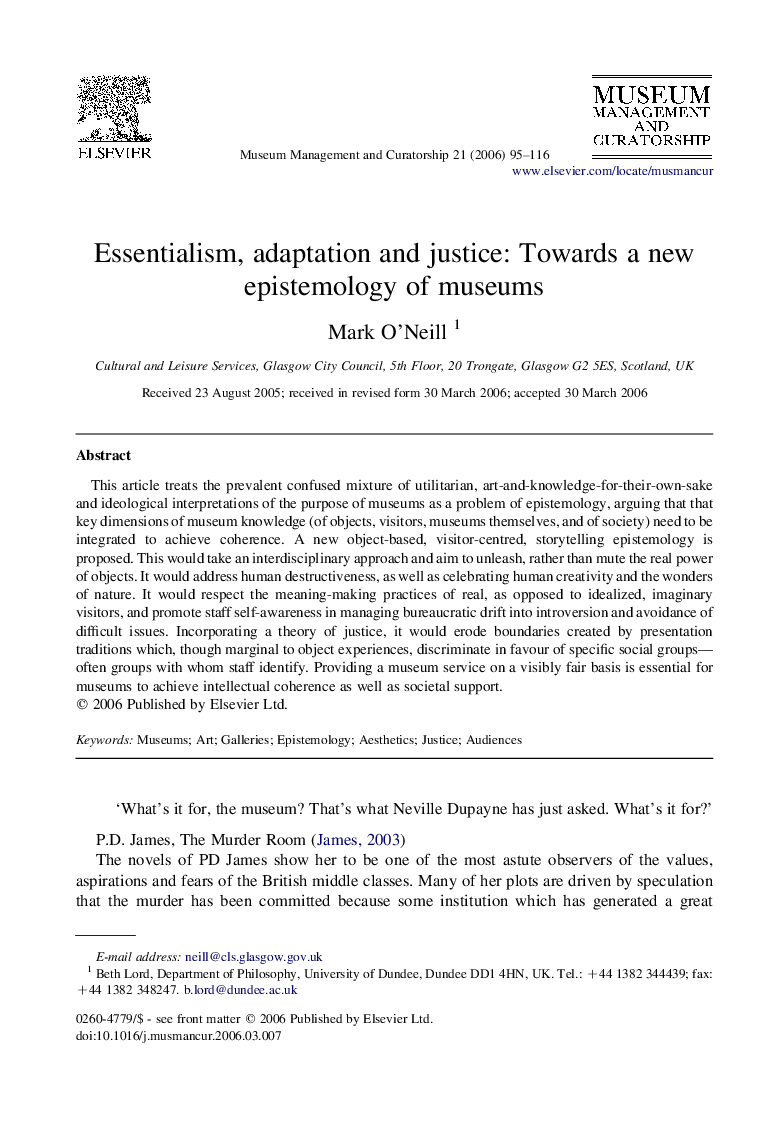| Article ID | Journal | Published Year | Pages | File Type |
|---|---|---|---|---|
| 1011691 | Museum Management and Curatorship | 2006 | 22 Pages |
This article treats the prevalent confused mixture of utilitarian, art-and-knowledge-for-their-own-sake and ideological interpretations of the purpose of museums as a problem of epistemology, arguing that that key dimensions of museum knowledge (of objects, visitors, museums themselves, and of society) need to be integrated to achieve coherence. A new object-based, visitor-centred, storytelling epistemology is proposed. This would take an interdisciplinary approach and aim to unleash, rather than mute the real power of objects. It would address human destructiveness, as well as celebrating human creativity and the wonders of nature. It would respect the meaning-making practices of real, as opposed to idealized, imaginary visitors, and promote staff self-awareness in managing bureaucratic drift into introversion and avoidance of difficult issues. Incorporating a theory of justice, it would erode boundaries created by presentation traditions which, though marginal to object experiences, discriminate in favour of specific social groups—often groups with whom staff identify. Providing a museum service on a visibly fair basis is essential for museums to achieve intellectual coherence as well as societal support.
